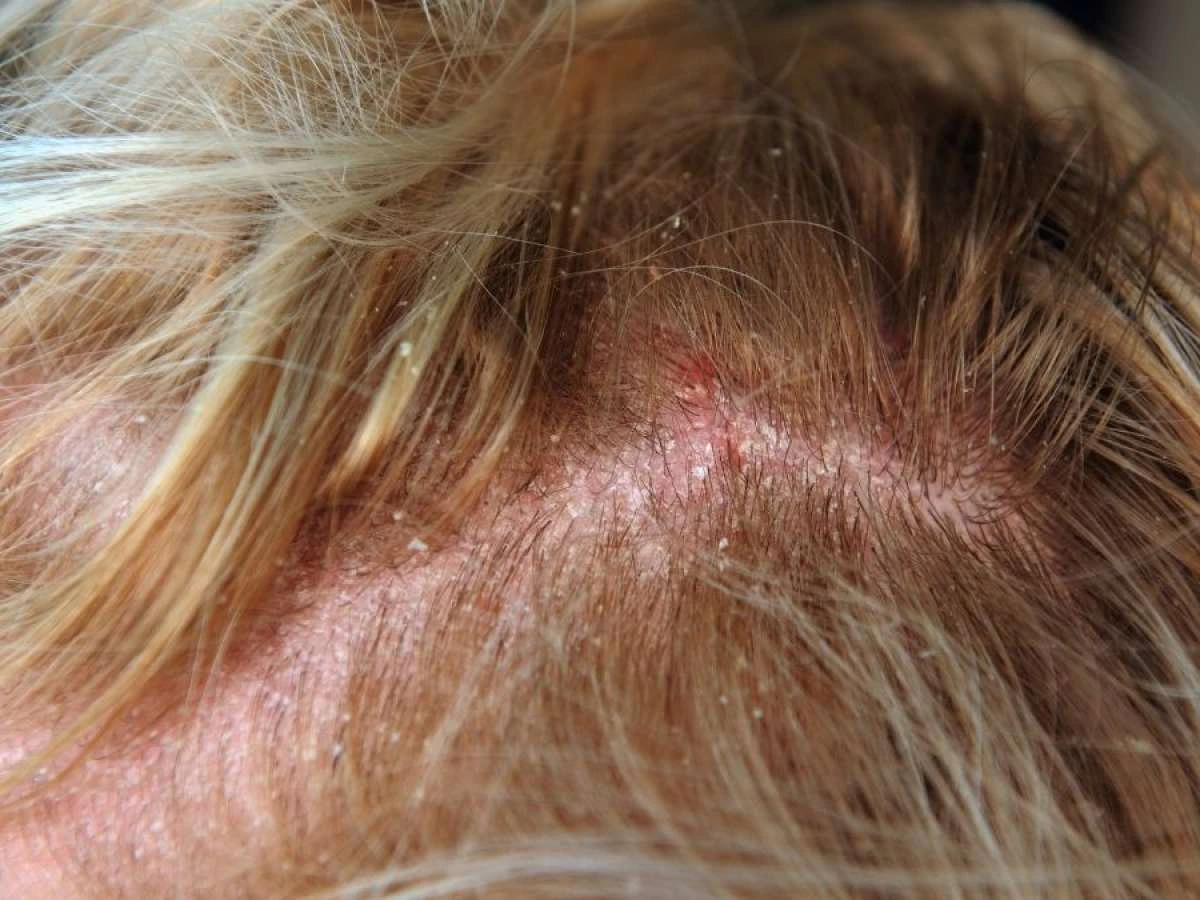What are the symptoms of a scalp yeast infection?
A scalp yeast infection, often caused by an overgrowth of the fungus Malassezia, can present with a range of symptoms. These symptoms include:
- Itching: Persistent itching or discomfort on the scalp.
- Redness: Inflammation and redness of the affected areas.
- Flaking: Scales or flakes on the scalp, which may appear similar to dandruff but can be more pronounced.
- Dryness: The scalp may feel dry, tight, or irritated.
- Oily Patches: Areas of the scalp may become excessively oily.
- Hair Loss: In more severe cases, inflammation and scratching can lead to temporary hair loss.
- Rash: Rash-like patches or bumps may develop on the scalp.
- Odor: An unpleasant smell may be present due to the fungal infection.
If you suspect you have a scalp yeast infection, consulting a healthcare provider or dermatologist is important for proper diagnosis and treatment.
What are the causes of a scalp yeast infection?
A scalp yeast infection is primarily caused by an overgrowth of the fungus Malassezia, which is normally present on the skin. Factors that can contribute to this overgrowth include:
- Oily Skin: Excessive oil production on the scalp can create an environment that promotes fungal growth.
- Hormonal Changes: Fluctuations in hormones, such as those during puberty, pregnancy, or menstruation, can influence yeast growth.
- Immunocompromised State: A weakened immune system, whether due to illness such as HIV/AIDS, medication, or conditions like diabetes, can increase susceptibility to fungal infections.
- Use of Certain Hair Products: Heavy or oily hair products, such as certain shampoos, conditioners, or styling products, can contribute to fungal overgrowth.
- Poor Hygiene: Infrequent washing or poor scalp hygiene can lead to the buildup of oils and skin cells, providing a breeding ground for yeast.
- Warm, Humid Conditions: Warm and humid environments can encourage fungal growth, making conditions more favorable for scalp infections.
- Underlying Skin Conditions: Conditions like seborrheic dermatitis or eczema can predispose individuals to scalp yeast infections by disrupting the normal skin barrier.
- Diet: High sugar or refined carbohydrate intake may also contribute to yeast overgrowth in some individuals.
If you experience symptoms of a scalp yeast infection, it’s important to seek advice from a healthcare provider or dermatologist for proper diagnosis and treatment.
What is the treatment for a scalp yeast infection?
Treating a scalp yeast infection typically involves a combination of antifungal medications and good scalp care practices. Here’s a comprehensive approach:
- Antifungal Shampoos: Use shampoos containing antifungal agents like ketoconazole, selenium sulfide, or zinc pyrithione. These can help reduce fungal growth and alleviate symptoms.
- Topical Antifungal Treatments: For more severe infections, topical antifungal creams or lotions containing clotrimazole, miconazole, or terbinafine may be prescribed by a healthcare provider.
- Oral Antifungal Medications: In persistent or severe cases, oral antifungal medications such as fluconazole or itraconazole may be necessary. These should be used under medical supervision.
- Proper Scalp Hygiene: Wash the scalp regularly with a mild, non-irritating shampoo to keep it clean and reduce oil buildup. Avoid using harsh hair products that can irritate the scalp.
- Moisturize: Apply a gentle, non-comedogenic moisturizer to the scalp if it is dry or irritated, to help maintain a healthy scalp environment.
- Avoid Triggers: Identify and avoid factors that may contribute to fungal overgrowth, such as excessive use of oily hair products, or warm, humid environments.
- Healthy Lifestyle: Maintain a balanced diet, manage stress, and keep your immune system healthy to support overall skin health and reduce the risk of infections.
- Consult a Healthcare Provider: If over-the-counter treatments are not effective or if symptoms are severe, seek advice from a healthcare provider or dermatologist for a tailored treatment plan.
These measures can help manage and treat a scalp yeast infection effectively.

Leave a Reply
You must be logged in to post a comment.